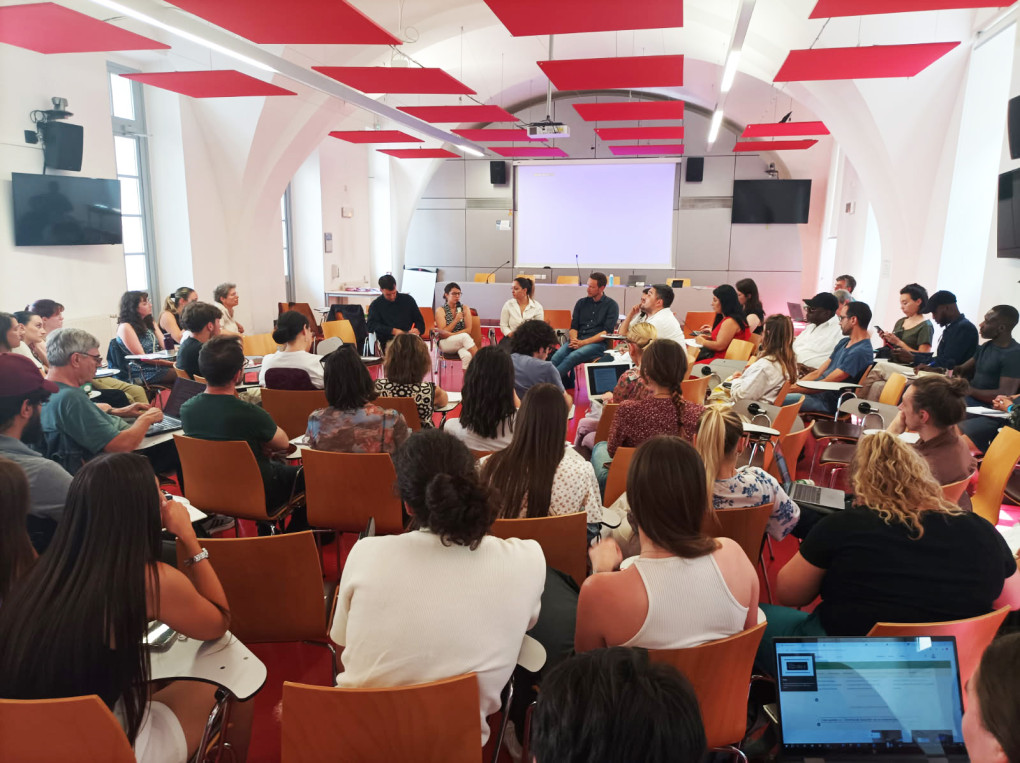One of the questions asked on June 5 at the 4th Study Day organized by Montpellier’s Discrimination Observatory was: “What are the tools needed to overcome discrimination and stabilize professional activity in disadvantaged neighborhoods?”
Organized by Paul Valéry University Montpellier, the City, and Montpellier Métropole, in partnership with the Hérault prefecture, the day notably focused on “questioning existing practices and making recommendations to improve the career paths of entrepreneurs in disadvantaged neighborhoods,” where, according to a 2023 study, “the business failure rate is higher than in other areas.”
The Montpellier Métropole and the City of Montpellier are firmly committed to equality, diversity and the fight against discrimination. In 2021, the Montpellier set up the Montpellier Discrimination Observatory, which brings together its Social Cohesion Department and the LEIRIS laboratory at Paul Valéry University Montpellier. The observatory enables stakeholders to act more effectively to ensure that everyone has the same opportunities to succeed.
In addition to implementing its Montpellier-Grabels Zero Long-Term Unemployment program, launching the Montpellier Impact platform, and supporting a variety of initiatives such as Active Airdie Occitanie’s Essenti’Elles program, Montpellier Métropole and the City of Montpellier also directly assisted innovative project leaders from underprivileged neighborhoods, a priority target for local policy.
This is how Montpellier BIC, ranked among the world’s top five public incubators, has now become part of the Espace Gisèle Halimi facility, in the heart of Montpellier’s La Mosson neighborhood.
“60% of the managers assisted by Montpellier BIC have an average of five years of higher education. What’s more, 29% are PhD candidates and 19% are women. At Montpellier BIC, we therefore decided to smash the glass ceiling by promoting different profiles with inspiring backgrounds,” explains Pauline Grosset-Grange, Montpellier BIC advisor and coach for creating and developing innovative businesses.
Actions carried out at the Espace Gisèle Halimi facility include meetings organized by Montpellier BIC, French Tech Méditerranée, and Les Premières Occitanie, where entrepreneurs talk about their career paths, including their mistakes, to show that there is always a way to overcome them.
“At Montpellier BIC, we became aware that many people in urban neighborhoods are innovating without necessarily realizing it. Our role is to identify these innovators with the help of our partners in the Osez Entreprendre collective and help them bring their projects to life,” explains Pauline Grosset-Grange.
Four project leaders from the La Mosson neighborhood have already been selected and referred to the program, and Montpellier BIC regularly brings its innovation and support partners to the Espace Gisèle Halimi space, a showcase for the vitality and creativity emerging from this changing neighborhood.
In addition, Montpellier BIC is deeply involved with the French Tech Tremplin initiative, which works to reduce inequalities in access to entrepreneurship. In fact, the 2023 national winners were announced at the Halle de l’Innovation, a BIC facility. 14 innovative companies have been assisted by Montpellier BIC since 2021.
The incubator also teams up with France Travail to organize speed-networking events to help people find jobs in start-ups.
For Montpellier Métropole and the City of Montpellier, economic transformation must truly serve as a launch pad to create jobs for all, and the ecological transition must be accompanied by a social transition rooted in solidarity. This is one of the goals of CAP 2030, the economic roadmap established by Montpellier Métropole to make its territory more inclusive.



